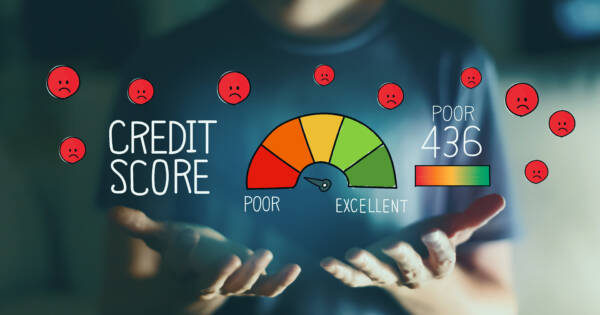The holiday season is a time of joy, connection, and—let’s face it—spending. For many, credit cards become the go-to tool for managing holiday shopping. However, while they offer convenience and rewards, they can also lead to overspending and financial stress if not handled carefully. Whether you’re buying gifts, booking travel, or treating yourself to a festive splurge, following a few dos and don’ts can help you maximize your credit card benefits while avoiding potential pitfalls.
Do: Create a Holiday Shopping Budget
Before you start swiping your card, take time to set a realistic budget. Determine how much you can afford to spend on gifts, decorations, and other holiday-related expenses without compromising your financial stability.
Why it matters: A credit card can feel like “free money,” but it’s essential to remember that every dollar spent must be repaid—with interest if you carry a balance. By establishing a budget, you set clear boundaries that keep your holiday spending under control.
Pro tip: Use budgeting tools or apps to track your spending in real-time. Many credit card companies also offer spending alerts to help you stay on top of your finances.
Don’t: Wait Until the Last Minute to Shop
Procrastination can lead to impulsive purchases, which are often more expensive. The closer you get to the holidays, the more likely you are to overspend in an effort to cross items off your list quickly.
Why it matters: Retailers may raise prices on high-demand items as the holidays near. Additionally, last-minute shopping increases the temptation to use your credit card for convenience rather than carefully considered purchases.
Pro tip: Start shopping early to take advantage of sales and promotions. Planning ahead also gives you the chance to compare prices and use your credit card strategically for cashback or rewards.
Do: Take Advantage of Rewards and Promotions
Credit cards often come with perks like cashback, travel points, or holiday-specific promotions. Use these features to your advantage, but make sure they align with your spending habits.
Why it matters: Properly leveraging your card’s rewards can offset some of your holiday expenses. However, chasing rewards can also lead to overspending if you’re not careful.
Pro tip: Check your card’s rewards portal for exclusive discounts or bonus points on certain purchases. Some cards also offer price protection, allowing you to get reimbursed if an item you bought goes on sale.
Don’t: Overspend for the Sake of Rewards
While rewards programs are appealing, they shouldn’t justify unnecessary purchases. Spending more than you can afford to earn points or cashback can negate any benefits, especially if you carry a balance and incur interest charges.
Why it matters: Rewards are only valuable if they enhance your financial well-being. If you’re spending beyond your means, the cost of interest and potential debt will outweigh any perks.
Pro tip: Focus on making purchases you already planned and budgeted for. Treat rewards as a bonus, not a reason to spend.
Do: Pay Your Balance in Full Each Month
One of the most important rules of using credit cards responsibly is to pay your balance in full by the due date. This helps you avoid interest charges and keep your holiday spending from snowballing into long-term debt.
Why it matters: Credit card interest rates can be high, and carrying a balance into the new year can make it harder to achieve other financial goals. Paying off your balance promptly ensures you stay in control of your finances.
Pro tip: If paying in full isn’t possible, aim to pay more than the minimum due to reduce your interest costs.
Don’t: Max Out Your Credit Card
It’s tempting to use your credit card’s full limit during the holidays, but doing so can hurt your credit score and leave you with limited financial flexibility.
Why it matters: High credit utilization (the amount of credit you use compared to your total limit) can negatively impact your credit score. Additionally, maxing out your card leaves no room for emergencies.
Pro tip: Keep your credit utilization below 30% of your total limit to maintain a healthy credit score. If you anticipate significant holiday spending, consider using multiple payment methods to spread out the load.
Do: Monitor Your Statements Regularly
With the flurry of holiday shopping, it’s easy to lose track of your transactions. Regularly reviewing your credit card statements can help you spot errors, unauthorized charges, or signs of fraud.
Why it matters: Credit card fraud tends to spike during the holidays. Catching discrepancies early can save you from potential financial headaches and protect your credit score.
Pro tip: Enable purchase notifications on your credit card app for instant updates on every transaction. This makes it easier to spot anything unusual right away.
Don’t: Forget to Redeem Rewards Before They Expire
Many credit card rewards come with expiration dates, so be sure to redeem them in a timely manner. Letting rewards go unused is like leaving money on the table.
Why it matters: Rewards can significantly reduce your holiday expenses, but only if you use them. Ignoring expiration dates or specific redemption rules can lead to missed opportunities.
Pro tip: Set calendar reminders for reward expiration dates, and look for ways to use them on holiday purchases, like gift cards or statement credits.
Shop Smart and Stay Financially Healthy
Holiday shopping can be enjoyable and stress-free if you use your credit card wisely. By creating a budget, taking advantage of rewards, and paying your balance in full, you can make the most of your credit card benefits without falling into debt.
Remember to avoid overspending, procrastination, and high credit utilization to keep your financial health intact. The holidays are about giving, but they shouldn’t come at the expense of your financial well-being. With thoughtful planning and disciplined spending, you can celebrate the season while staying on track for a prosperous new year.








